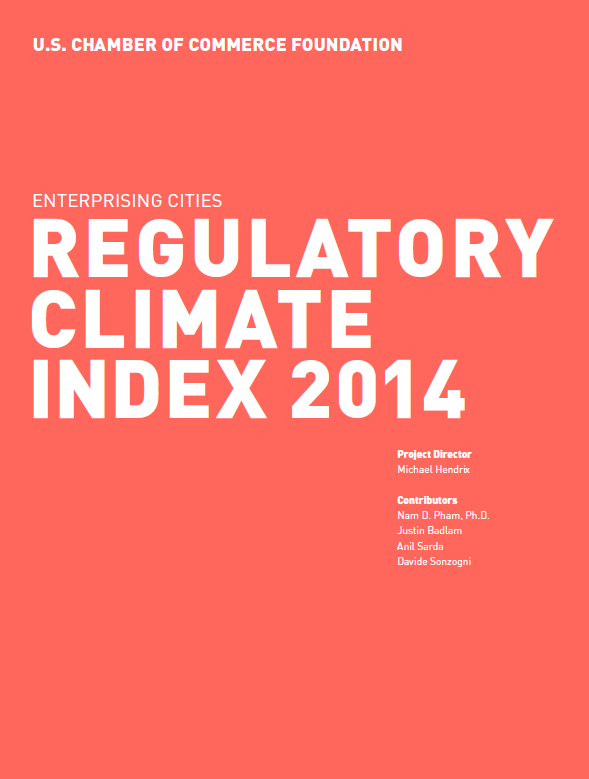 The revitalization of cities has become a significant focus among today’s Christians, with many flocking to urban centers filled with lofty goals and aspirations for change and transformation.
The revitalization of cities has become a significant focus among today’s Christians, with many flocking to urban centers filled with lofty goals and aspirations for change and transformation.
Last summer, James K.A. Smith expressed concern that such efforts may be overly romanticizing certain features (community!) to the detriment of others (government), concluding that “farmer’s market’s won’t rescue the city” but “good government will.” Chris Horst and I followed up to this with yet another qualifier, arguing that while both gardens and good governance are indeed important, so is business and entrepreneurship.
Families, churches, institutions, businesses, and governments all need to be in right relationship if cities are to flourish, and this means that Christians need to gain a clear understanding of what these relationships look like. How do the economies of love, creative service, wisdom, wonder, and order interact and intersect, and how do we orient our actions and attitudes accordingly?
For example, if a city’s economic future is driven, among other things, by entrepreneurialism, high levels of human capital, clustering of skilled workers and industries, or in the case of North Dakota’s Bakken region, bountiful natural resources, what role should the People of God play therein? What role do families play in those endeavors? What about churches, community associations, organizations, or businesses? How ought public policy to guide (or not guide) various efforts? Christians are called to be concerned with all of the above.
In a new study by the U.S. Chamber of Commerce Foundation — Regulatory Climate Index 2014: The Cost of Doing Business in America — we see a great example of the types of questions we ought to be asking. Focusing on 10 cities across America, the study investigates “the efficiency of local regulations that apply to small businesses,” demonstrating the full impact that the dirtier, more “boring” and mundane elements can have on whether and how individuals are empowered to invest, serve, and sacrifice within and for their cities. (The project was led by Michael Hendrix, who has contributed here on the blog in the past.)
Although many such studies have been done at the national or state level, few have focused on how regulatory environments vary from city to city, despite the variety that exists and the impact that such (dis)incentives have on economic behavior. As the study explains:
Cities thrive on innovation, expansion of small businesses, and entrepreneurship. Growth, new business formation, and free enterprise will do more for a city’s economy than any economic development policy can induce on its own. Economic achievement is tied to a fair and transparent legal infrastructure. The successes and failures of cities, small businesses, and entrepreneurs will depend heavily on rules and institutions that enable advancement and future prosperity….
…Regulations have an impact on firms, firm behavior, and overall economic growth on the macroeconomic level. Entrepreneurs and small businesses entering the market face the “compliance burden” through complicated, redundant procedures and inconsistent, high costs for entering the marketplace. Artificial entry costs deter entrepreneurship at the margin; thus, reform, through the reduction of entry costs, is predicted to affect entrepreneurship and job formation positively. Evidence shows that entrepreneurship is higher when fixed costs (e.g., entering the marketplace) are lower. Further, the impact of regulation on business entry signifies that such regulations and costs are associated with reduced job creation and reduced entry of new firms.
There is the question: How can local government enable advancement in the sphere of business and economics? This is what I mean by riding the overlap, examining the interaction, and participating at the intersection.
The study focuses on 5 key areas of regulation — (1) starting a business, (2) dealing with construction permits, (3) registering property, (4) paying taxes, and (5) enforcing contracts — assessing each based on the burden of procedures, cost, and time required.
Read the full report here, but the results are summarized below:
Although Dallas clearly tops the list, with New York at a depressing low, the authors ultimately conclude that “there are no clear-cut winners and losers,” and though such a study is helpful, these results but scratch the surface:
Each city performs well in certain areas and needs improvement in others. The ultimate goal of this research is to encourage cities to improve their regulatory environments in support of their local entrepreneurs…
…Local officials and policymakers can better understand the business conditions facing entrepreneurs and small firms by simply looking at the local laws, processes, and costs on the books for starting a business and other regulations common over the life cycle of a business. The success of their cities depends on improving existing regulatory processes, simplifying the business licensing procedures, and easing the barriers to entry for entrepreneurs who can further unleash the promise of free enterprise for American cities.
Further, whether they be local officials, policymakers, or otherwise, Christians ought to absorb these results in a similar manner. Discussing and thinking about the impact of these regulations isn’t going to be as alluring or romantic as building a community garden, planting a home church, or organizing a march for XYZ Awareness, but such regulations are nevertheless bound to alter the content of the very soil from which such seeds may sprout, for better or worse.
We ought not let regulations wholly dictate and determine the direction of our work and service, but we also need to heed the importance of such features in opening the doors to new possibilities that help unleash human potential and empower creative service wherever possible.
As the authors affirm, this study is but one small example of how we might begin to rethink and reevaluate the deeper relationships between institutions as they relate to our cities. Let it not be the end.
[product sku=”1440″]


